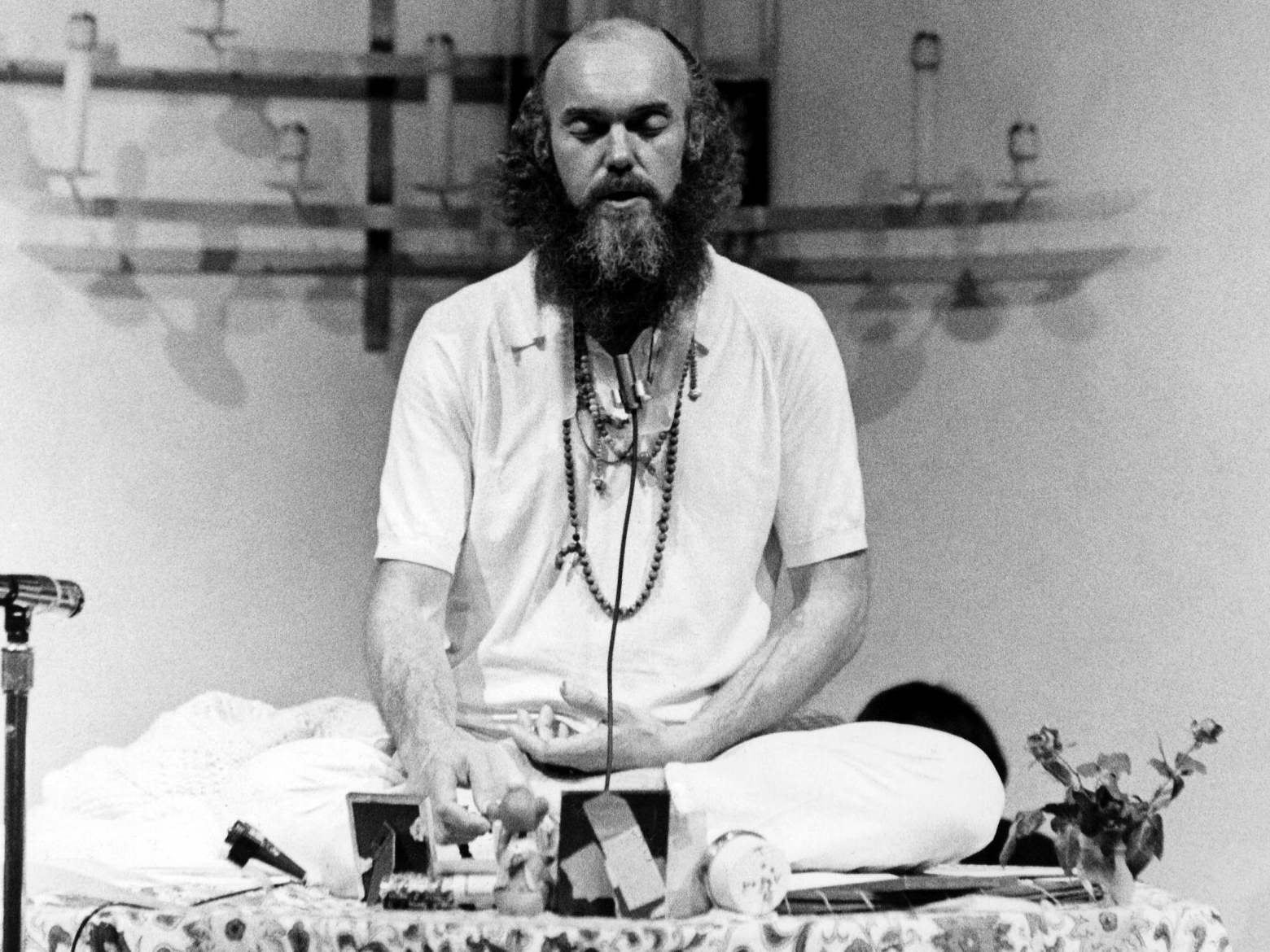Ram Dass: Spiritual seeker who brought Eastern mysticism to the masses
A proponent of LSD’s sensory-enhancing properties, he later turned to meditation and yoga, writing the seminal text ‘Be Here Now’

Your support helps us to tell the story
From reproductive rights to climate change to Big Tech, The Independent is on the ground when the story is developing. Whether it's investigating the financials of Elon Musk's pro-Trump PAC or producing our latest documentary, 'The A Word', which shines a light on the American women fighting for reproductive rights, we know how important it is to parse out the facts from the messaging.
At such a critical moment in US history, we need reporters on the ground. Your donation allows us to keep sending journalists to speak to both sides of the story.
The Independent is trusted by Americans across the entire political spectrum. And unlike many other quality news outlets, we choose not to lock Americans out of our reporting and analysis with paywalls. We believe quality journalism should be available to everyone, paid for by those who can afford it.
Your support makes all the difference.Ram Dass, who has died aged 88, was a popular author and white-robed apostle of Eastern mysticism who began his transcendental journey more than 50 years ago as the right-hand disciple of the psychedelic-drug advocate Timothy Leary.
Be Here Now, Ram Dass’s signature book, described his improbable evolution. Born Richard Alpert, the son of a railroad president and pillar of Boston’s Jewish elite, he grew up as a self-described “closet homosexual” in a “Jewish anxiety-ridden, high-achieving tradition”.
He gravitated to a lifestyle of heavy drug use in the 1960s while working as an associate professor of clinical psychology at Harvard University but found inner peace and spiritual enlightenment through meditation and yoga. An Indian guru gave him a new name, Ram Dass, which means “servant of God” in Hindi. The book came out in 1971, just after the peak years of the sociocultural revolution that dominated the 1960s, and sold 2 million copies.
A seemingly inexhaustible speaker, Ram Dass led marathon-length workshops and retreats that drew thousands of followers. His talks were filled with self-deprecating quips (“I’m not a guru. I’m only a student, and I give a good rap”) and he noted his own personal story while delivering a message that centred on self-reflection and finding meaning in a superficial, chaotic world.
Richard Alpert was born in Boston in 1931, and was the youngest of three sons. He had a history of tension with his controlling father, George, a high-powered Boston lawyer, president of the New York, New Haven and Hartford Railroad, and a founder of Brandeis University. His father harangued him to become a doctor, while the younger Alpert expressed interest in psychology.
After graduating in 1952 from Tufts College (now University) in Medford, Massachusetts, he received a master’s degree in psychology at Wesleyan University in 1954 and a doctorate in psychology at Stanford University in 1957.
He developed a reputation in graduate school as a spellbinding teacher, and in 1958 joined the Harvard faculty as an assistant professor. But he never realised how unhappy he was, he said, until he began tripping and “felt a new kind of calmness” and “a place where ‘I’ existed independent of social and physical identity”.
He befriended Leary, a Harvard clinical psychologist a decade older who had sampled psychedelic mushrooms during a summer in Mexico, and the two set about establishing a psychedelic programme at Harvard. Leary became America’s best-known proselytiser of LSD and other hallucinogenic drugs. “Turn on, tune in, drop out” was his perennial exhortation to millions of followers of the “flower-child” generation.

As colleagues, Leary and Alpert preached a gospel of drug-fuelled, consciousness-raising sensory perception and mental expansion, and ran experiments on LSD with Harvard graduate students. A 1963 article about their psychedelic experimentation in the Harvard Crimson, the daily student newspaper, led to Alpert’s and Leary’s dismissals. The former was fired for dispensing LSD to an undergraduate student in violation of his agreement with the university; the latter for dereliction in his teaching duties.
Within two years they were running an LSD research and experimentation centre at a farm near Millbrook, New York, where Alpert undertook a study that led to his disenchantment with the hallucinogens, according to Don Lattin in his 2010 book The Harvard Psychedelic Club.
Alpert locked himself in a bowling alley with five others, where once every four hours for two weeks they ingested huge doses of LSD. But it turned out that the larger the dosage, the less effective it was. The highs were no longer so high. Moreover, by the end of two weeks all of the participants had come to hate one another.
Alpert went to India in 1967 to seek the guidance of an Indian guru, who gave him a new name. Ram Dass devoted the rest of his life to teaching, lecturing and writing about the techniques and principles of his new lifestyle, which he described as staying fully present in the moment.
He wrote sequels to his first book, including Still Here: Embracing Aging, Changing and Dying (2000) and Be Love Now: The Path of the Heart (2010), and was the subject of several documentary films. He suffered a paralysing stroke in 1997.
In 2009 DNA testing established that he had a son he had not known about for half a century. Peter Reichard, a banker, survives him.
Ram Dass, spiritual teacher and author, born 6 April 1931, died 22 December 2019
© Washington Post
Join our commenting forum
Join thought-provoking conversations, follow other Independent readers and see their replies
Comments